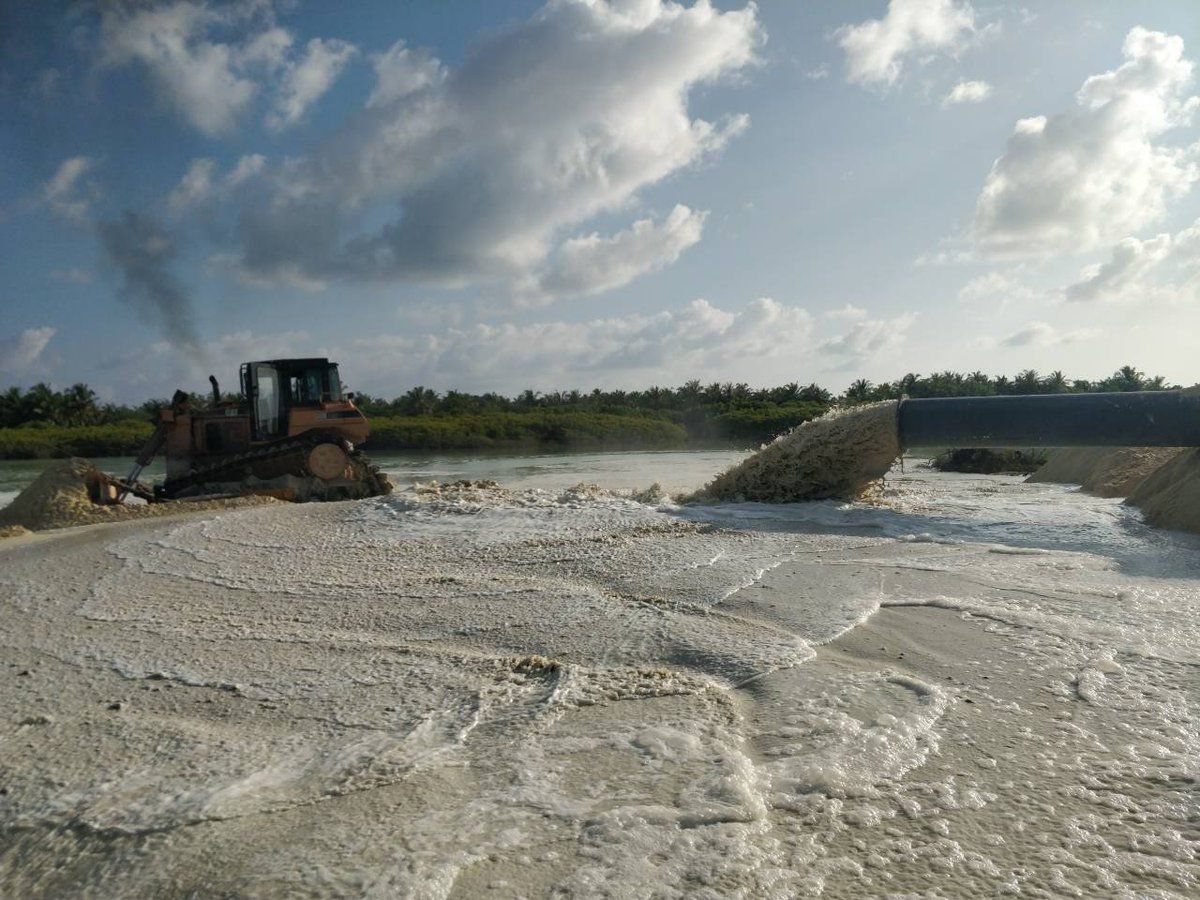Maldives blasted for destroying the environment
Tremors in the central Maldives were the result of reef blasting by a local resort firm.

05 Jun 2018, 09:00
The destruction caused by large-scale infrastructure projects in the Maldives is becoming more apparent, even as the government marked World Environment Day.
In the past two weeks there has been reef blasting that sparked tremors while strong swells have led to flooding in Kulhudhuffushi, where a mangrove and lagoon were reclaimed for a controversial airport project.
SaveMaldives, a citizen-led environmental movement, has documented the destruction with a publication looking at the “obsession with airports of questionable need, reclamation of lagoons and reefs for resort development to destruction of environmentally sensitive areas.”
“The Maldives is a rich nation with poor and underdeveloped local communities. It is a country in political turmoil, with governance in crisis,” says the group.
Become a member
Get full access to our archive and personalise your experience.
Already a member?
Discussion
No comments yet. Be the first to share your thoughts!
No comments yet. Be the first to join the conversation!
Join the Conversation
Sign in to share your thoughts under an alias and take part in the discussion. Independent journalism thrives on open, respectful debate — your voice matters.




